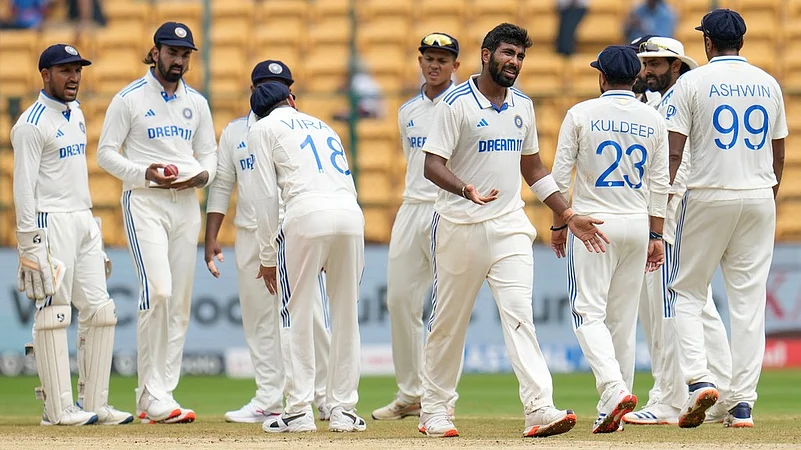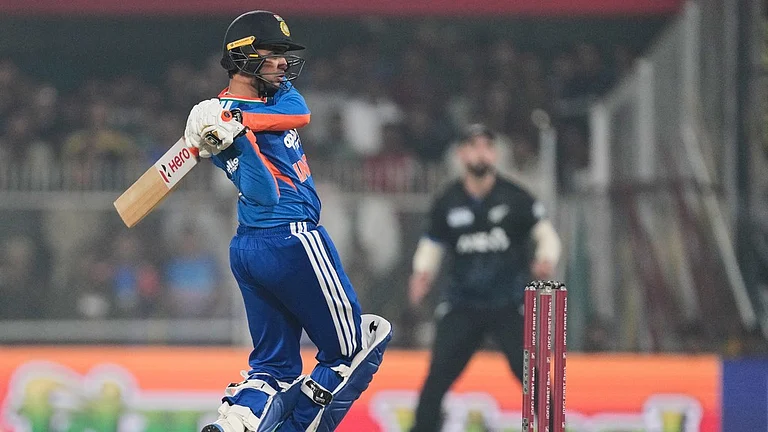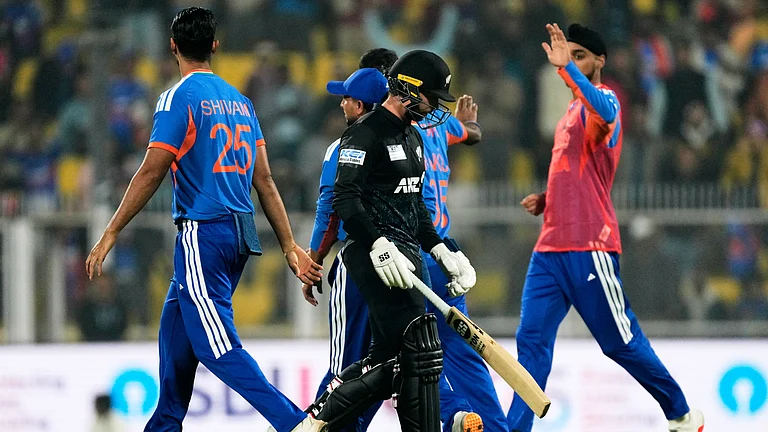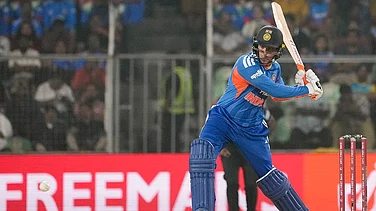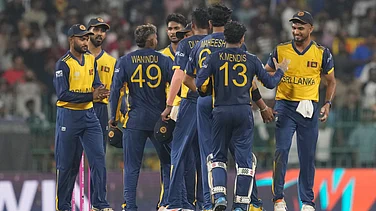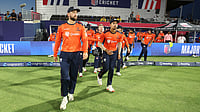New Zealand defeated India by eight wickets in the series opener in Bengaluru, in what might be the biggest upset in Test cricket in recent memory. India have been invincible at home and their domination in their own backyard in the last 12 years is unprecedented in the format’s history. (Highlights | Scorecard | Report)
The fact that it was just the third Test win for the Kiwis on Indian soil – and their first in 36 years – showcases the stranglehold India have had over opposition units since the start of the 1990s.
However, a closer analysis of the results and numbers indicates the emergence of a new trend which might be worrisome for India. Although the Bengaluru shocker was just the 16th defeat for India in India in Test cricket since the start of 2000, eight of these have come in the opening match of the series. And there have been four such defeats in the last 13 home series for India since 2017. Is this just a minor blip or a part of a larger trend? Are India poor starters? Do they have a problem in series openers even in home conditions?

Mumbai 2000, Mumbai 2001, Bengaluru 2004, Nagpur 2010, Pune 2017, Chennai 2021, Hyderabad 2024 and Bengaluru 2024 – are now interconnected in history for these are the eight defeats for India in the opener of a home series since the start of 2000.
India’s defeat against New Zealand in Bengaluru has similarities to their four losses in home series openers between 2000 and 2010 when world-class fast bowling units from Australia and South Africa, which included the likes of Glenn McGrath, Jason Gillespie, Allan Donald, Shaun Pollock, Dale Steyn and Morne Morkel – tormented the Indian batting line-up. Fast forward to 2024 and the trio of Matt Henry, Tim Southee and William O’Rourke routed the famed Indian batting line-up for a paltry 46 in the first innings in favourable conditions at the Chinnaswamy.
The architects of opposition victories in Pune 2017, Chennai 2021 and Hyderabad 2024, in stark contrast, were relatively unknown spinners who exploited the conditions to their advantage. The slow left-arm orthodox Stephen O’Keefe ran through the Indian line-up in the first Test of the 2017 series in Pune. India were routed for 105 in the first innings and that was, in effect, the end of the encounter. Australia dominated the Test thereafter and won the match by 333 runs.
Joe Root’s double hundred and Dom Bess’ four-wicket haul in the first innings gave England a 200-run lead in the first Test in Chennai in 2021. India could not force their way back into the match and faced a massive defeat by 227 runs.
England also got the better of India in the first Test in Hyderabad, earlier this year. The home team could not press the advantage despite a 190-run lead in the first innings. An unknown left-arm orthodox spinner – Tom Hartley – that too on debut – was again responsible for India’s capitulation in the second innings, returning with a match-winning 7-62.
The loss against New Zealand in Bengaluru is a warning sign for Team India. It is for the first time in 37 years that they have lost two home Tests to two different teams in a calendar year. And both were the first Tests of the series.
The question that then emerges is that are India poor starters? Do they need to prepare better prior to big Test series even in home conditions?
This trend of starting slowly has also cost India on overseas tours. India have lost the opening Test in four of their last eight away series in SENA (South Africa, England, New Zealand and Australia). Interestingly, India have made a comeback and tasted success in all these four series but that has happened after the debacle in the series opener. It is almost as if they need a shock before they unleash their A-game!
South Africa beat India by 72 runs in the series opener in Cape Town in 2018, but the visitors won the third Test in Johannesburg. England overcame India in a thriller in Birmingham in the summer of 2018 but India came back to register a big win at Trent Bridge. After the debacle of ‘36’ in Adelaide in 2020, India staged one of the greatest comebacks in Test history to register wins in Melbourne and Brisbane for a historic 2-1 series win Down Under. South Africa routed India by an innings in the first Test at Centurion in 2023 before India levelled the series, winning by seven wickets in Cape Town.
Visiting teams take time to adjust to the adverse conditions in SENA. Also, a packed cricketing calendar means that there is hardly time for any first-class matches on tour. But surely, India do not need practice games in favourable local conditions. Moreover, they had just inflicted a 2-0 defeat at home on Bangladesh so were well-tuned to the demands of red-ball cricket.
It is more of a mental thing for India. Such has been their ruthless display in Tests in the country in the last 12 years that a series at home is almost taken for granted to be a clean sweep. This can give rise to complacency and over-confidence. At the same time, opposition teams seem to be at the top of their game in series openers when it is a clean slate, the mind and body are fresh and they have not yet been bogged down by the trials and tribulations of challenges on and off the field in India.
Despite the loss in Bengaluru, which does make their task of qualifying for the World Test Championship final in 2025 a tad more difficult, India are still favourites to win the series.
After all, they have bounced back and won four of the previous seven home series where they faced defeat in the first Test of the series. South Africa – 2000 and Australia – 2004 were the only exceptions while the two-match series against South Africa in 2010 was tied at 1-1.
Expect nothing less than a big Indian win in Pune and Mumbai. Oh, and of course, rank turners might be on the menu!






